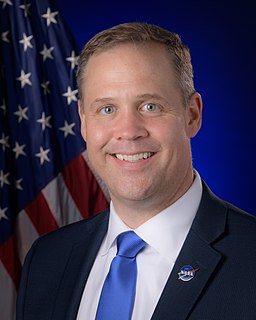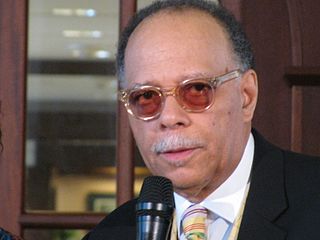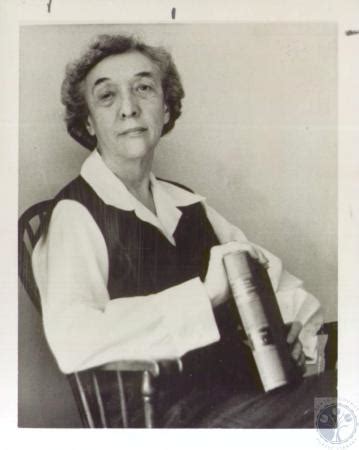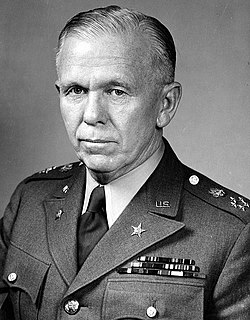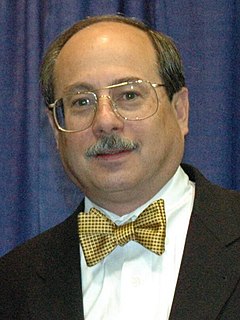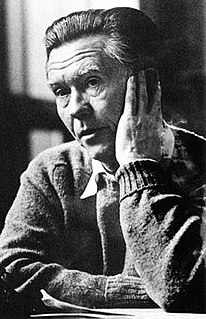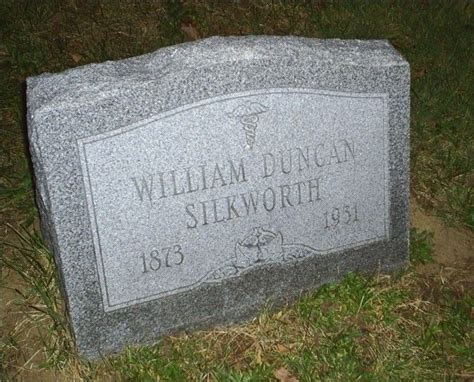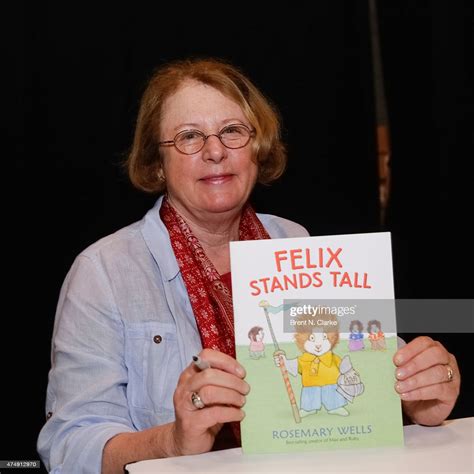Top 411 Tragedies Quotes & Sayings - Page 7
Explore popular Tragedies quotes.
Last updated on April 16, 2025.
I want my work to become part of our visual history, to enter our collective memory and our collective conscience. I hope it will serve to remind us that history's deepest tragedies concern not the great protagonists who set events in motion but the countless ordinary people who are caught up in those events and torn apart by their remorseless fury. I have been a witness, and these pictures are my testimony. The events I have recorded should not be forgotten and must not be repeated.
My life was typical. I played a little Little League baseball. I never wanted for food. I always had shoes. I had a room. There were no great tragedies. There were the typical ups and downs but I wouldn' t say it was at all sad. We were Jewish and living in the suburbs so there was a slightly neurotic bent to it, but I can't point to anything where a boy overcame a tragedy to become a comedian. As my grandmother used to say, 'I can't complain.
The marvellous instinct with which women are usually credited seems too often to desert them on the only occasions when it would be of any real use. One would say it was there for trivialities only, since in a crisis they are usually dense, fatally doing the wrong thing. It is hardly too much to say that most domestic tragedies are caused by the feminine intuition of men and the want of it in women.
Very few people in the world would care to listen to the real defense of their own characters. The real defense, the defense which belongs to the Day of Judgment, would make such damaging admissions, would clear away so many artificial virtues, would tell such tragedies of weakness and failure, that a man would sooner be misunderstood and censured by the world than exposed to that awful and merciless eulogy.
Twenty years ago the Oklahoma City bombing seared the concept of terrorism on American soil into our national consciousness and proved that we are all vulnerable, even in the heartland. I was in college at Rice University in 1995. All of us remember exactly where we were that day, and we will never forget the 168 people who were killed. Terrorism is evil, yet the incredible response to tragedies like we experienced in Oklahoma 20 years ago serve to highlight the strength, resolve, and resiliency of the American people to the world.
One of the great tragedies of modern education is that most people are not taught to think critically. The majority of the world’s people, those of the West included, are taught to believe rather than to think. It’s much easier to believe than to think. People seldom think seriously about that which we are taught to believe, because we are all creatures of imitation and habit.
We are not meant to stay wounded. We are supposed to move through our tragedies and challenges and to help each other move through the many painful episodes of our lives. By remaining stuck in the power of our wounds, we block our own transformation. We overlook the greater gifts inherent in our wounds - the strength to overcome them and the lessons that we are meant to receive through them. Wounds are the means through which we enter the hearts of other people. They are meant to teach us to become compassionate and wise.
William Shakespeare was the most remarkable storyteller that the world has ever known. Homer told of adventure and men at war, Sophocles and Tolstoy told of tragedies and of people in trouble. Terence and Mark Twain told cosmic stories, Dickens told melodramatic ones, Plutarch told histories and Hans Christian Andersen told fairy tales. But Shakespeare told every kind of story – comedy, tragedy, history, melodrama, adventure, love stories and fairy tales – and each of them so well that they have become immortal. In all the world of storytelling he has become the greatest name.
I read a lot. I always have, but in those two years I gorged myself on books with a voluptuous, almost erotic gluttony. I would go to the local library and take out as many as I could, and then lock myself in the bedsit and read solidly for a week. I went for old books, the older the better - Tolstoy, Poe, Jacobean tragedies, a dusty translation of Laclos - so that when I finally resurfaced, blinking and dazzled, it took me days to stop thinking in their cool, polished, crystalline rhythms.
Live in the present. The past is gone; the future is unknown -- but the present is real, and your opportunities are now. You must see these opportunities; they must be real for you. The catch is that they can't seem real if your mind is buried in past failures, if you keep reliving old mistakes, old guilts, old tragedies. Fight your way above the many inevitable Traumatizations of your ego, escape damnation by the past, and look to the opportunities of the present. I don't mean some vague moment in the present -- next week or next month, perhaps. I mean today, this minute.
Patricia Smith is one of the best poets around and has been for a long time. Her Blood Dazzler is full of capacious soul and formal inventiveness: the compassion and artfulness necessary to capture the tragedies and Tragedy of Katrina. Smith is herself a storm of beautiful, frightening talent. Her words will wash you or wash you away. I consider this new book a major literary event.
[Rhyme is] but the invention of a barbarous age, to set off wretched matter and lame Meter; ... Not without cause therefore some both Italian and Spanish poets of prime note have rejected rhyme, ... as have also long since our best English tragedies, as... trivial and of no true musical delight; which [truly] consists only in apt numbers, fit quantity of syllables, and the sense variously drawn out from one verse into another, not in the jingling sound of like endings, a fault avoided by the learned ancients both in poetry and all good oratory.
To some it may seem old-fashioned to speak of virtue and chastity, honesty, morality, faith, character, but these are the qualities which have built great men and women and point the way by which one may find happiness in the living of today and eternal joy in the world to come. These are the qualities which are the anchors to our lives, in spite of the trials, the tragedies, the pestilences, and the cruelties of war which bring in their wake appalling destruction, hunger, and bloodshed
I am truly amazed that after all this time, religious groups still need to attack entertainment and use these tragedies as a pitiful excuse for their own self-serving publicity. In response to their protests, I will provide a show where I balance my songs with a wholesome Bible reading. This way, fans will not only hear my so-called, violent point of view, but we can also examine the virtues of wonderful 'Christian' stories of disease, murder, adultery, suicide and child sacrifice. Now that seems like 'entertainment' to me.
There has been considerable comment over the awarding of the Nobel Peace Prize to a soldier. I am afraid this does not seem as remarkable to me as it quite evidently appears to others. I know a great deal of the horrors and tragedies of war. ... The cost of war in human lives is constantly spread before me, written neatly in many ledgers whose columns are gravestones. I am deeply moved to find some means or method of avoiding another calamity of war.
It helps to regard soul as an active intelligence, forming and plotting each person's fate. Translators use "plot" to render the ancient Greek word mythos in English. The plots that entangle our souls and draw forth our characters are the great myths. That is why we need a sense of myth and knowledge of different myths to gain insight into our epic struggles, our misalliances, and our tragedies. Myths show the imaginative structures inside our messes, and our human characters can locate themselves against the background of the characters of myth.
The reaction against your own thought in itself lends life to thought. How this reaction is born is hard to describe, because it identifies with the very rare intellectual tragedies. The tension, the degree and level of intensity of a thought proceeds from its internal antinomies, which in turn are derived from the unsolvable contradictions of a soul. Thought cannot solve the contradictions of the soul. As far as linear thinking is concerned, thoughts mirror themselves in other thoughts, instead of mirroring a destiny.
The commission had to subpoena the F.A.A. for documents, had to subpoena NORAD for documents and they will never get the full story. That is one of the tragedies. One of these days we will have to get the full story because the 9-11 issue is so important to America. But this White House wants to cover it up.
You can't make flivers without steel - and you can't make tragedies without social instability. The world's stable now. People are happy; they get what they want, and they never want what they can't get. They're well off; they're safe; they're never ill; they're not afraid of death; they're blissfully ignorant of passion and old age; they're plagued with no mothers or fathers; they've got no wives, or children, or lovers to feel strongly about; they're so conditioned that they pratically can't help behaving as they ought to behave.
The answer to the problem of evil does not lie in trying to establish its point of origin, for that is simply not revealed to us. Rather, in the moment of the cross, it becomes clear that evil is utterly subverted for good.... If God can take the greatest of evils and turn them for the greatest of goods, then how much more can he take the lesser evils which litter human history, from individual tragedies to international disasters, and turn them to his good purpose as well.
She was trying to say something else; she was trying to say that the inability to articulate what one feels in any satisfactory way is one of our enduring tragedies. It wouldn't have been much, and it wouldn't have been useful, but it would have been something that reflected the gravity and the sadness inside her. Instead, she had snapped at him for being a loser. It was as if she were trying to find a handhold on the boulder of her feelings, and had merely ended up with grit under her nails.
People can't seem to get it through their heads that there is never any healing or closure. Ever. There is only a short pause before the next "horrifying" event. People forget there is such a thing as memory, and that when a wound "heals" it leaves a permanent scar that never goes away, but merely fades a little. What really ought to be said after one of these so-called tragedies is, "Let the scarring begin.
None of us makes it through this life without problems and challenges — and sometimes tragedies and misfortunes. After all, in large part we are here to learn and grow from such events in our lives. We know that there are times when we will suffer, when we will grieve, and when we will be saddened. However, we are told, “Adam fell that men might be; and men are, that they might have joy.” How might we have joy in our lives, despite all that we may face? Again from the scriptures: “Wherefore, be of good cheer, and do not fear, for I the Lord am with you, and will stand by you."
However good we are, however correctly we seek to lead our lives, tragedies do occur. We can blame others, look for justification, imagine how our lives would have been different without them. But none of that matters: they have happened, and that is that. From this point on, it is necessary that we review our own lives, overcome fear, and begin the process of reconstruction.
Pakistan always seems to have a lot of political complexities and political challenges. But Pakistan is important for a number of reasons. Primarily, it is a nuclear power. And if, in fact, al Qaeda and Taliban, which are in Pakistan and causing a lot of tragedies and deaths in Pakistan - if they would ever somehow have real influence and control of that government, then we [world] really have a problem.
These kinds of tragedies [like shooting in Fort Lauderdale] have happened too often during the eight years that I've been president. The pain, the grief, the shock that they must be going through is enormous. I've asked me staff to reach out to the mayor down there and make sure that coordination between the state and local officials is what it should be. But I think we'll find out over the next 24 hours exactly how this happened and what motivated this individual.
Well, I always tried to look nice and be feminine even in the worst tragedies and crisis, there's no reason to add to everyone's misery by looking miserable yourself. That's my philosophy. This is why I always wore makeup and jewelry into the jungle-nothing too extravagant, but maybe just a nice gold bracelet and some earrings, a little lipstick, good perfume. Just enough to show that I still had my self-respect.
The idea of safety had shrunk into particles - one snug moment, then the next. Meanwhile, the brain piped fugues of worry and staged mind-theaters full of tragedies and triumphs, because unfortunately, the fear of death does wonders to focus the mind, inspire creativity, and heightens the senses. Trusting one's hunches only seems gamble if one has time for seem; otherwise the brain goes on autopilot and trades the elite craft of analysis for the best rapid insights that float up from its danger files and ancient bag of tricks.
I follow many tragedies around the world. At one point I [will] feel like I've accumulated an enormous amount of information, a critical mass amount of information, and I feel like acting - reacting. My manifesto has always been the same: I cannot act in the world before understanding the world. I will not move a finger. I will not come up with any ideas - nothing - until I actually understand what is happening.
One of the great tragedies of life, it seems to me, is when a person classifies himself as someone who has no talents or gifts. When, in disgust or discouragement, we allow ourselves to reach depressive levels of despair because of our demeaning self-appraisal, it is a sad day for us and a sad day in the eyes of God. For us to conclude that we have no gifts when we judge ourselves by stature, intelligence, grade-point average, wealth, power, position, or external appearance is not only unfair but unreasonable.
Jesus will turn your sorrow into joy. One can only imagine the shock and bewilderment the Apostles felt when the Lord told them he must go away. Though they could not understand it at the time, his departure was for their benefit. The same is true of the unexpected setbacks and tragedies we experience in this life...When I consider the times when I have been confounded by events that seemed so contrary to what I thought God wanted for me, I should be mindful that they were permitted by the Lord's inscrutable providence for my own good, as difficult as that might be to fathom.
Each year, members of Canada’s Ukrainian community, Parliamentarians and others commemorate the Holodomor at gatherings across the country. In doing so, we honour the memory of those who perished and the legacy of those who survived, including many who found refuge in Canada. It is by remembering the tragedies and atrocities of the past that we can equip ourselves to prevent them from happening again. That is why this national tour, which will reach Canadians of all ages and backgrounds, is an important initiative
I think one of the tragedies of the civil rights movement was because the civil rights movement became so court-focused, I think that there was a tendency to lose track of the political and community organizing, and activities on the ground, that are able to put together the actual coalitions of power throughout which you bring about redistributive change. And in some ways, we still suffer from that.
The longer I lived, the more beautiful life became - despite my personal tragedies, the fire, despite my third wife and her dreadful taste. My dear Olgivanna, she insisted on replacing the lovely canvas and wooden trusses at Taliesin West with steel supports and pink frosted glass. Well, I was too old to care by then. What I decided early on was this: If you foolishly ignore beauty, you will soon find yourself without it. Your life will be impoverished. But if you invest in beauty, it will remain with you all the days of your life.
The Christians who engaged in infamous persecutions and shameful inquisitions were not evil men but misguided men. The churchmen who felt they had an edict from God to withstand the progress of science, whether in the form of a Copernican revolution or a Darwinian theory of natural selection, were not mischievous men but misinformed men. And so Christ's words from the cross are written in sharp-edged terms across some of the most inexpressible tragedies of history: 'They know not what they do'.
Nature is a hanging judge," goes an old saying. Many tragedies come from our physical and cognitive makeup. Our bodies are extraordinarily improbable arrangements of matter, with many ways for things to go wrong and only a few ways for things to go right. We are certain to die, and smart enough to know it. Our minds are adapted to a world that no longer exists, prone to misunderstandings correctable only by arduous education, and condemned to perplexity about the deepest questions we can ascertain.
There is nothing just or fair about what happened to Jordan Edwards. And his story is yet another in a long line of tragedies that now powerfully remind us of the long way we still have to go in creating a fair and just relationship between law enforcement, our criminal justice system, and the public our laws are supposed to protect.
The Greek tragedies and comedies are like a roadmap to all the ways in which trying to live this rich, full life can go wrong. You could get into a war. You could find that you have members of your family on the wrong side of a political crisis. You could be raped. You could find that your child has gone crazy because of some horrible experience she's had.
You see that pale, blue dot? That's us. Everything that has ever happened in all of human history, has happened on that pixel. All the triumphs and all the tragedies, all the wars all the famines, all the major advances... it's our only home. And that is what is at stake, our ability to live on planet Earth, to have a future as a civilization. I believe this is a moral issue, it is your time to seize this issue, it is our time to rise again to secure our future.
I think that we are passionate creatures who really live our fullest life when we are deeply engaged, when we feel successes, and exult in them, when we feel losses and tragedies and are hurt by them. So I came to the conclusion that Eastern ideas of withdrawal may not be right for modern Westerners. If you read the ancient texts, they're pretty severe. I mean, they really are not the sort of thing that you would think compatible with really throwing yourself into life and being a part of it.
The principle tragedy of my life is, like all tragedies, an irony of Destiny. I reject real life as if it were a condemnation; I reject dreams as if they were an ignoble liberation. [...]After the end of the stars uselessly whitened in the morning sky and the breeze became less cold in the barely orange tinged in the yellow of the light on the scattered low clouds, I, who hadn't slept, could finally, slowly raise my body, exhausted from nothing from the bed from which I had thought the universe.
The Way It Is There’s a thread you follow. It goes among things that change. But it doesn’t change. People wonder about what you are pursuing. You have to explain about the thread. But it is hard for others to see. While you hold it you can’t get lost. Tragedies happen; people get hurt or die; and you suffer and get old. Nothing you do can stop time’s unfolding. You don’t ever let go of the thread. ~ William Stafford ~
If the universe were just electrons and selfish genes, meaningless tragedies ... are exactly what we should expect, along with equally meaningless good fortune. Such a universe would be neither evil nor good in intention ... The universe we observe has precisely the properties we should expect if there is, at bottom, no design, no purpose, no evil and no good, nothing but blind pitiless indifference.
It has long been a tradition among novel writers that a book must end by everybody getting just what they wanted, or if the conventional happy ending was impossible, then it must be a tragedy in which one or both should die. In real life very few of us get what we want, our tragedies don't kill us, but we go on living them year after year, carrying them with us like a scar on an old wound.
Citizenship means standing up for the lives that gun violence steals from us each day. I have seen the courage of parents, students, pastors, and police officers all over this country who say 'we are not afraid,' and I intend to keep trying, with or without Congress, to help stop more tragedies from visiting innocent Americans in our movie theaters, shopping malls, or schools like Sandy Hook.
If any feel that as psychiatrists directing a hospital for alcoholics we appear somewhat sentimental, let them stand with us a while on the firing line, see the tragedies, the despairing wives, the little children; let the solving of these problems become a part of their daily work, and even of their sleeping moments, and the most cynical will not wonder that we have accepted and encouraged this movement. We feel, after years of experience, that we have found nothing which has contributed more to the rehabilitation of these men than the altruistic movement now growing up among them.
Even in the tragedies, Shakespeare always put in parts for the comic actors because his audience was mixed. He puts in people who talk like aristocrats. He puts in idiots and fools. He puts in certain middle-range characters. And when you go to the Globe, you realize how that all works. The people who paid more sat in seats around the edge. Everybody else paid a penny. They put it into a tin box - that's why we call it the "box office." They stood in the pit, but they were very close, so when Hamlet was doing his soliloquy, it was addressed to you, the audience - right there.
According to how gifted we are, we are all given a large or small key to this treasury of wonders. I have been blessed with a small key to the world of the young. It's a place where good and evil are clearly stamped. It's a place where the better part of human nature triumphs over tragedies, and where innocence rides high. It is a great pleasure to write there, because the young have what the rest of us only envy, and that is a belief in goodness and perpetual hope.





